Off Page SEO Meaning: Unlock Your Search Authority


Off page SEO holds the key to elevating your website's search engine rankings. With Domain Authority Score ranking as the sixth strongest predictor of search rankings, understanding off page SEO becomes essential for anyone looking to enhance their online visibility. But here’s the twist: most people think it only revolves around backlinks. The real surprise is that it's about building a robust reputation and trust across the internet, making your site credible in the eyes of search engines.
Defining Off Page SEO Meaning
Off page SEO refers to all the activities you undertake outside of your website to improve its search engine rankings. Unlike on-page SEO, which focuses on optimizing elements within your website, off page SEO involves external optimization strategies that help search engines understand your site's authority, relevance, and trustworthiness.
The Core Concept of Off Page SEO
At its foundation, off page SEO (sometimes called off-site SEO) encompasses all optimization efforts that happen away from your website. Think of your website as a business in a competitive marketplace. On-page SEO is like organizing your store's interior, while off page SEO is equivalent to your reputation in the community and what others say about you.
Off page SEO meaning centers on building your website's authority through external signals. These signals tell search engines that your website is valuable, credible, and relevant to users' needs. According to Semrush's 2024 Ranking Factors study, Domain Authority Score—which is largely based on backlink quality and quantity—ranks as the sixth strongest predictor of search rankings.
Why Off Page SEO Matters

Search engines like Google want to deliver the most valuable results to users. While your on-page content demonstrates relevance, off page factors help engines determine if others find your content valuable as well. This external validation is crucial for competitive rankings.
Consider this analogy: If two restaurants have identical menus and pricing, you're more likely to choose the one recommended by friends, featured in local news, and with positive online reviews. Similarly, search engines favor websites that others reference, link to, and engage with.
Key Elements of Off Page SEO
While off page SEO encompasses numerous strategies, several core elements define it:
- Backlink Building: Quality links from authoritative websites that point to your site serve as votes of confidence in your content
- Social Signals: Engagement and shares on social media platforms indicate popularity and relevance
- Brand Mentions: References to your brand across the web, even without direct links, build recognition
- Guest Blogging: Creating content for other websites to expand reach and earn quality backlinks
Understanding off page SEO meaning requires recognizing that these activities work together to build what search marketers often call "domain authority"—a measure of how trustworthy and authoritative your site appears to search engines.
Off Page vs. On Page: The Crucial Distinction
The fundamental difference between on-page and off-page SEO lies in control. With on-page SEO, you have direct control over optimization elements—your content, HTML, site structure, and user experience. Off page SEO involves factors you can influence but don't directly control, such as how others perceive and reference your site.
This distinction is important because a comprehensive SEO strategy needs both components. Even the most perfectly optimized website content won't rank well without external signals confirming its value. Conversely, strong off-page signals pointing to poorly optimized content won't deliver sustainable ranking success.
When implemented effectively, off page SEO strategies significantly enhance your website's visibility, authority, and ranking potential, complementing your on-page optimization efforts to create a robust SEO foundation.
Key Takeaways
| Takeaway | Explanation |
|---|---|
| Off Page SEO is Essential for Authority | Off page SEO activities help establish your website's authority and trustworthiness through external signals like backlinks, brand mentions, and social engagement, which are crucial for competitive rankings. |
| Backlink Quality Over Quantity | Focus on building high-quality backlinks from authoritative websites, as they serve as votes of confidence for your content and hold more weight than numerous low-quality links. |
| Complementary Roles of SEO Types | On page and off page SEO work together; strong on page optimization lays a solid foundation, while off page signals validate and enhance that optimization to improve search visibility. |
| Measuring Off Page SEO Success | Key Performance Indicators like domain authority growth, backlink profile metrics, and organic search traffic are vital for evaluating and refining your off page SEO strategy over time. |
| Patience is Key in Off Page SEO | Off page SEO is a long-term investment, and metrics such as improvements in domain authority and keyword rankings may take months to show significant results. |
Comparing Off Page And On Page SEO
Understanding the relationship between off page and on page SEO is essential for developing a comprehensive search engine optimization strategy. These two components work in tandem but focus on different aspects of optimization. Let's explore how they complement each other and the unique roles each plays in improving your website's search visibility.
Fundamental Differences
On page SEO involves optimizing elements directly on your website that you have complete control over. This includes your content quality, keyword usage, meta descriptions, URL structures, internal linking, and site performance. Think of on page SEO as optimizing your website from the inside.
In contrast, off page SEO focuses on external signals that indicate your site's reputation and authority to search engines. These external factors include backlinks from other websites, brand mentions across the web, social media presence, and other activities happening outside your website's domain.
According to Semrush's analysis, Google considers both on-page and off-page factors when determining search rankings, making a balanced approach crucial for achieving high positions in search results.
Control and Influence
The key distinction between these two approaches lies in the level of control you have. With on page SEO, you exercise direct control over the optimizations you implement. You can modify your content, improve your page speed, enhance user experience, and structure your website in ways that appeal to both users and search engines.
Off page SEO, however, involves elements you can influence but rarely control completely. You can create link-worthy content and engage in outreach activities, but ultimately, other websites decide whether to link to your content. Similarly, while you can encourage social sharing, you cannot control how users engage with your content on social platforms.
Complementary Roles in Ranking
These two aspects of SEO work together like two sides of the same coin. Consider this relationship:
- On page SEO establishes relevance by showing search engines what your content is about
- Off page SEO builds authority by demonstrating that others find your content valuable
Neither works effectively in isolation. Excellent on page optimization without off page signals may result in well-structured content that few people discover. Conversely, strong off page signals pointing to poorly optimized content can drive traffic that quickly bounces due to poor user experience.
Timing and Prioritization
When developing an SEO strategy, it's generally advisable to focus on on page SEO first. This creates a solid foundation for your off page efforts. Think of it this way: you wouldn't invite guests to a house that isn't ready for visitors. Similarly, driving traffic through off page tactics to a poorly optimized site wastes the potential value of those hard-earned external signals.
On page optimization provides immediate benefits and creates the conditions necessary for successful off page optimization. Once your on page elements are well-optimized, you can confidently pursue off page strategies knowing that users who follow those external signals will have a positive experience on your site.
Measuring Success
The metrics for evaluating on page and off page SEO success also differ. On page SEO improvements often result in better keyword rankings for specific pages, reduced bounce rates, longer time on site, and improved conversion rates. These metrics reflect how well your site meets user intent.
Off page SEO success manifests through increased domain authority, growing referral traffic, more brand mentions across the web, and improved rankings for competitive keywords. These metrics indicate your site's growing reputation and authority in your industry.
By understanding how these two facets of SEO work together while respecting their differences, you can create a balanced strategy that maximizes your site's visibility and performance in search results.
Key Off Page SEO Techniques
Successful off page SEO requires implementing a diverse set of strategies that build your website's authority and reputation across the internet. These techniques work together to signal to search engines that your content is valuable, trustworthy, and worthy of high rankings. Let's explore the most effective off page SEO techniques that can significantly impact your search visibility.
Strategic Link Building

Backlinks remain the cornerstone of off page SEO. These are links from other websites that point to your pages, effectively serving as votes of confidence for your content. However, not all backlinks are created equal. The quality, relevance, and authority of linking domains matter far more than quantity.
Strategic link building involves:
- Creating linkable assets – Develop high-value content like original research, comprehensive guides, or unique tools that naturally attract links
- Outreach to relevant websites – Identify websites in your niche and build relationships with site owners or content managers
- Guest posting opportunities – Contribute valuable content to authoritative publications in your industry
- Broken link building – Find broken links on relevant websites and suggest your content as a replacement
The focus should always be on earning links naturally through valuable content rather than manipulative tactics that violate search engine guidelines. Quality backlinks from authoritative domains in your niche carry significantly more weight than numerous low-quality links from irrelevant sites.
Brand Mentions and Citations
Even unlinked mentions of your brand across the web contribute to your off page SEO profile. These mentions, sometimes called "implied links," help search engines understand your brand's reach and reputation. They're particularly valuable when they appear on high-authority websites, industry publications, or popular forums.
To increase brand mentions:
- Develop a consistent public relations strategy
- Engage with industry conversations and communities
- Create noteworthy content that gets referenced by others
- Participate in interviews, podcasts, or expert roundups
Consistent brand mentions across the web help establish your business as an authority in your space, enhancing your overall search visibility.
Social Media Engagement
While social media signals don't directly impact search rankings in the same way backlinks do, they contribute significantly to your overall off page SEO efforts. Active social media profiles with engaged followers help distribute your content, increase brand visibility, and indirectly generate more backlink opportunities.
An effective social media strategy includes:
- Maintaining active profiles on platforms where your audience spends time
- Sharing valuable content consistently
- Engaging authentically with followers and industry peers
- Encouraging social sharing of your content
When your content gets shared widely on social platforms, it increases visibility, drives traffic, and often leads to natural backlinks as more people discover your content.
Content Marketing and Syndication
Distributing your content across various platforms extends your reach beyond your website. Content syndication—republishing your content on other websites with permission and proper attribution—can significantly amplify your content's exposure and build more pathways back to your site.
Effective content distribution methods include:
- Publishing on industry-specific platforms
- Using content syndication networks
- Repurposing content for different formats (videos, infographics, slideshows)
- Contributing to industry publications and knowledge bases
This approach increases your content's visibility while creating opportunities for additional backlinks and brand mentions across the web.
Local SEO Activities
For businesses serving specific geographic areas, local off page SEO activities are essential. These include:
- Creating and optimizing Google Business Profile listings
- Building citations on local directories and review sites
- Encouraging and responding to customer reviews
- Participating in local events and community activities
These local signals help search engines understand your business's relevance to location-specific searches, improving visibility to nearby potential customers.
Implementing these off page SEO techniques requires patience and consistency. Unlike some on-page optimizations that can show quick results, off page SEO is about building lasting authority and trust, which develops gradually over time but delivers substantial long-term benefits to your search visibility.
Measuring Off Page SEO Impact
Determining the effectiveness of your off page SEO efforts is crucial for refining your strategy and ensuring your investment of time and resources delivers meaningful results. Unlike on-page optimizations where changes and improvements are immediately visible, measuring off page SEO impact requires tracking various metrics over time to identify patterns and progress. Let's explore how to effectively measure the impact of your off page SEO activities.
Key Performance Indicators for Off Page SEO
To properly evaluate your off page SEO performance, you need to track specific metrics that indicate growth in authority, visibility, and referral traffic. The most important KPIs include:
-
Domain Authority Growth: Monitor changes in your domain authority or domain rating scores through tools like Moz, Ahrefs, or Semrush to gauge your website's overall reputation and strength.
-
Backlink Profile Metrics: Track the total number of referring domains, new backlinks acquired, and the quality of those links. Focus particularly on the relevance of linking sites to your industry, as research by Journey Further indicates that link relevance actually outweighs pure link authority in terms of impact on organic visibility.
-
Brand Mention Volume: Measure how frequently your brand is mentioned across the web, both in linked and unlinked mentions, using tools like Google Alerts, Brand24, or Mention.
-
Organic Search Traffic: Monitor increases in non-branded organic search traffic, as this often indicates improved domain authority and better rankings for competitive keywords.
-
Referral Traffic: Track traffic coming directly from external websites where you've secured backlinks or mentions, which demonstrates the direct value of those off page assets.
Setting Up Proper Tracking Systems
To effectively measure these metrics, you'll need to implement comprehensive tracking systems:
-
Configure Google Analytics to track referral sources, allowing you to see which external links drive the most traffic to your site
-
Set up Google Search Console to monitor search performance, including impressions and click-through rates for keywords you're targeting
-
Utilize dedicated SEO tools that track backlinks, domain authority, and competitor metrics
-
Implement brand monitoring tools to capture mentions across various platforms
Establish a regular cadence for reviewing these metrics—weekly for high-level indicators and monthly for more comprehensive analysis. This consistent monitoring helps you identify trends and correlate specific off page activities with changes in performance.
Attributing Results to Specific Activities
One of the challenges in measuring off page SEO impact is attributing results to specific activities. To address this:
- Create distinct campaigns for different off page tactics and track them separately
- Use UTM parameters for links you can control (like in guest posts or partner content)
- Document your off page activities in a timeline that can be compared against performance metrics
- Analyze traffic and ranking changes after significant link-building or PR campaigns
This structured approach to attribution helps you understand which types of off page activities deliver the best results for your specific business and industry.
Benchmarking Against Competitors
Your off page SEO performance should always be evaluated in the context of your competitive landscape. Competitive benchmarking involves:
- Comparing your backlink profile growth against key competitors
- Analyzing competitors' brand mention frequency and sentiment
- Identifying gaps in your off page strategy by examining where competitors are active but you aren't
- Tracking keyword ranking changes relative to competitors
This comparative analysis provides context for your metrics and helps identify opportunities where competitors may be outperforming you in their off page strategies.
Timeframes for Measuring Impact
Off page SEO is a long-term investment, and realistic timeframes for measuring impact are important. While some metrics like referral traffic can show immediate changes, others such as domain authority and organic ranking improvements typically take months to demonstrate significant movement.
A general guideline for measurement timeframes:
- Short-term (1-3 months): Backlink acquisition, brand mentions, referral traffic
- Medium-term (3-6 months): Search visibility improvements, domain authority growth
- Long-term (6+ months): Competitive keyword rankings, sustained organic traffic growth
By approaching measurement with patience and consistency, you'll develop a clear picture of how your off page SEO efforts contribute to your overall digital marketing success and make data-driven decisions to optimize your strategy.
Frequently Asked Questions
What is off page SEO?
Off page SEO refers to all the actions taken outside of your website to improve its search engine rankings. This includes building backlinks, generating brand mentions, and engaging on social media platforms to establish authority and trust.
Why is off page SEO important?
Off page SEO is crucial because it helps search engines determine your website's authority and trustworthiness. Quality external signals, such as backlinks and social shares, indicate that your content is valuable and relevant, which can improve your rankings.
How can I improve my website's off page SEO?
You can enhance your off page SEO by focusing on strategies like building quality backlinks, engaging in social media, creating shareable content, participating in guest blogging, and increasing brand mentions across the internet.
How long does it take to see results from off page SEO?
The effects of off page SEO can take time to manifest. While some metrics, like referral traffic, may show quick changes, significant improvements in domain authority and keyword rankings often take several months to become evident.
Elevate Your Off Page SEO with BabyLoveGrowth.ai
Unlocking your website's search authority requires more than just solid on-page content; it demands a comprehensive off-page strategy that builds your online reputation. If you're grappling with issues like securing quality backlinks, enhancing brand mentions, or boosting social signals, you're not alone. Many small and medium-sized businesses face these challenges, often feeling overwhelmed by the competitive landscape.
With BabyLoveGrowth.ai, tackling off-page SEO has never been easier. Our AI-driven platform automates the creation of tailored, SEO-optimized content that attracts high-quality backlinks and boosts your domain authority. Imagine having a custom 30-day content plan designed from an in-depth analysis of your business and competitors, all while you focus on what you do best. Our seamless process means you can connect with your audience more effectively and watch your organic traffic grow.
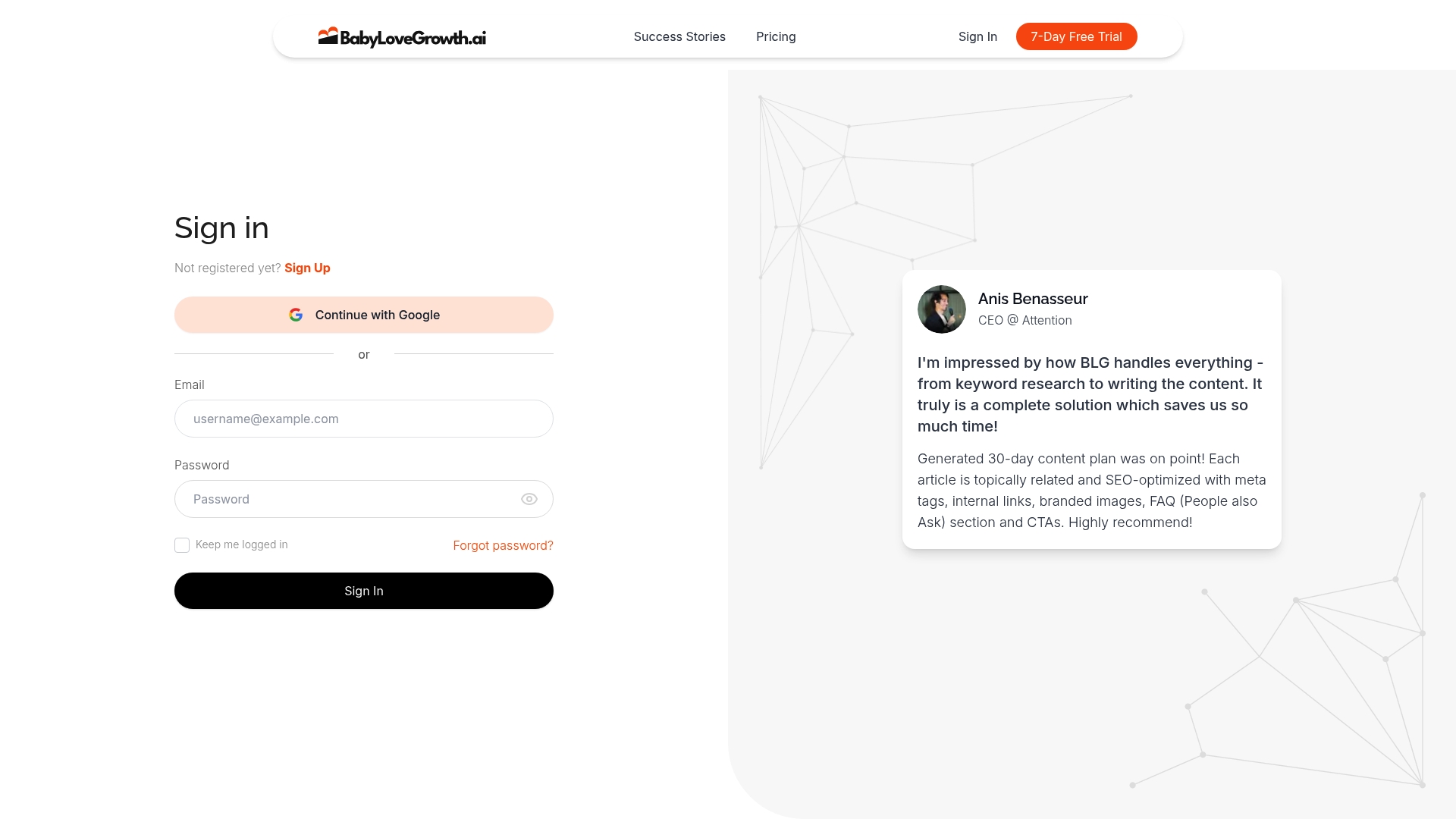
Ready to transform your off-page strategy and see real results? Don’t wait—visit https://babylovegrowth.ai today and take the first step toward unlocking your website's full potential. Enhance your search engine visibility and leave your competition behind!
Recommended Articles
- SEO for Manufacturers That Work: Boost Your Online Presence
- Essential Guide: How to Get Backlinks for SEO Success
- What is Website Optimization? Your Simple Guide to Boost Site Performance
- SEO for Dentists: Boost Your Practice with Proven Strategies
- Mastering the Product Marketing Approach: Proven Strategies to Elevate Your Brand
Smart SEO,
Faster Growth!
Most Read Articles
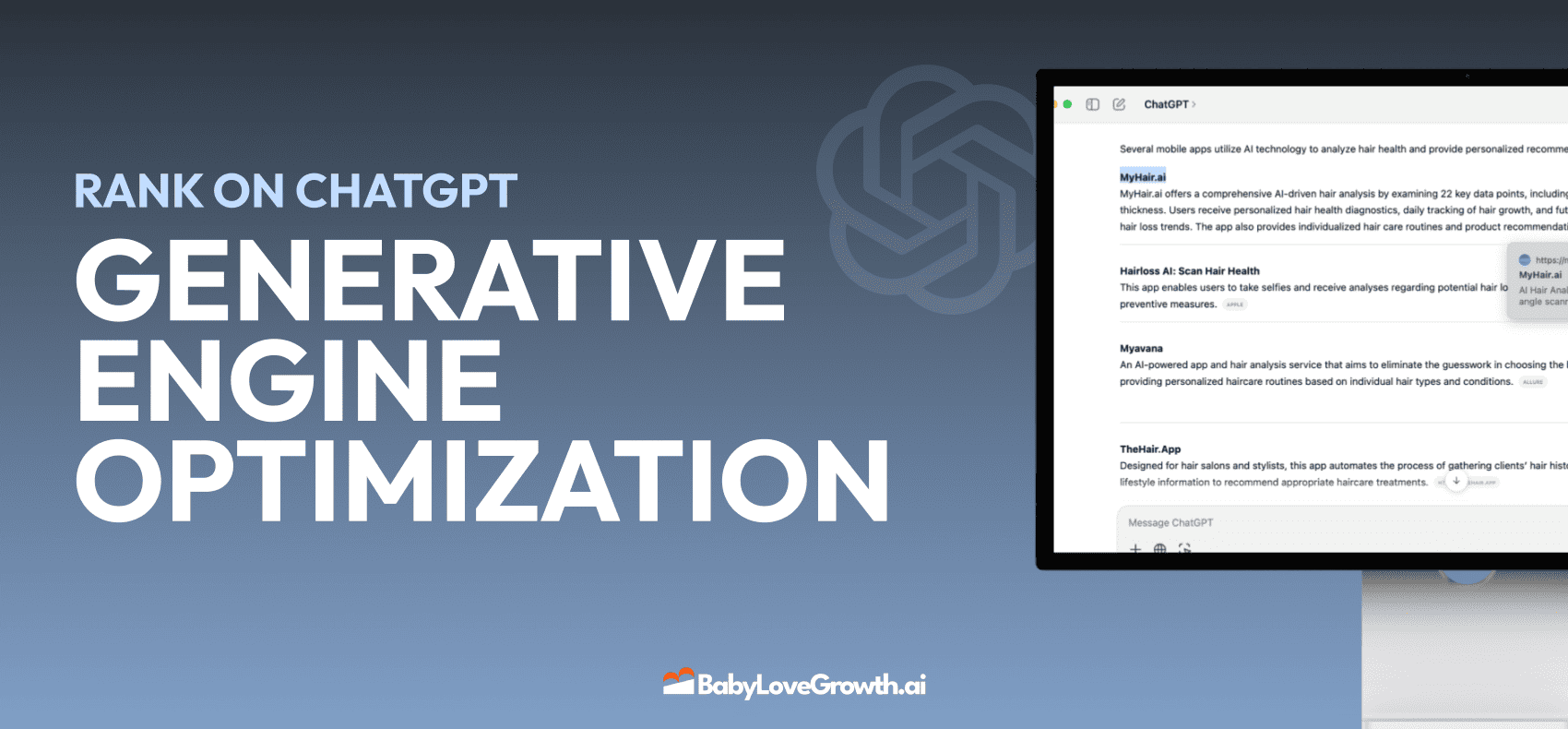
Generative Engine Optimization (GEO)
Learn how Generative Engine Optimization (GEO) helps your content rank in AI search engines like ChatGPT and Google AI. This comprehensive guide explains the differences between SEO and GEO, why it matters for your business, and practical steps to implement GEO strategies for better visibility in AI-generated responses.
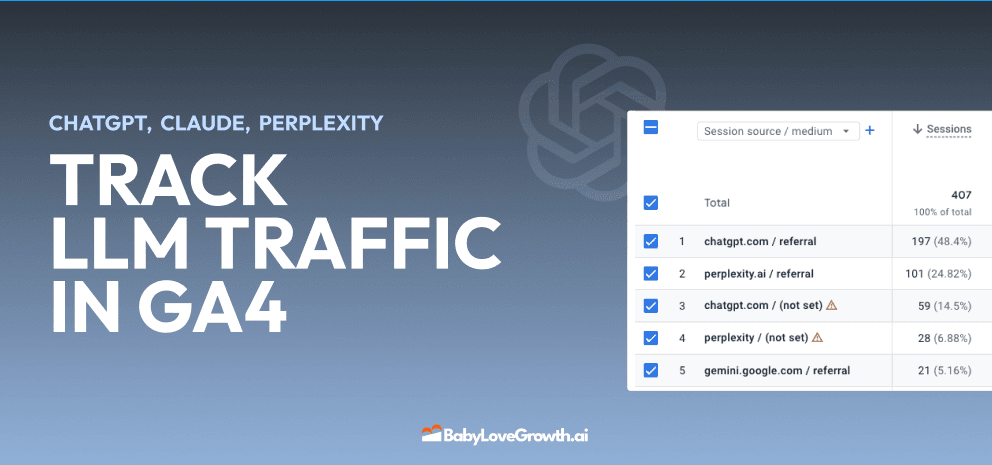
Track LLM Traffic in Google Analytics 4 (GA4)
Learn how to track and analyze traffic from AI sources like ChatGPT, Claude, Perplexity, and Google Gemini in Google Analytics 4. This step-by-step guide shows you how to set up custom filters to monitor AI-driven traffic and make data-driven decisions for your content strategy.
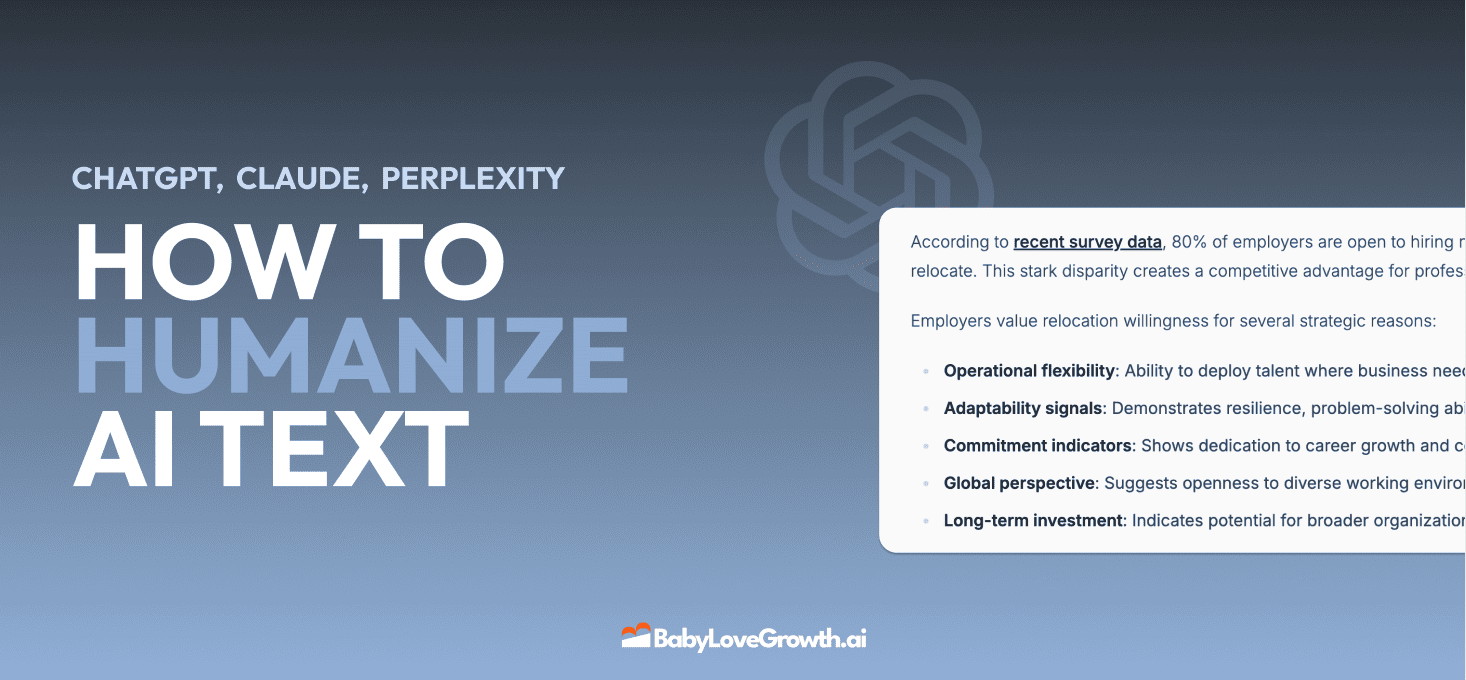
How to Humanize AI Text with Instructions
Learn practical techniques to make AI-generated content sound more natural and human. This guide covers active voice, direct addressing, concise writing, and other proven strategies to transform robotic text into engaging content.
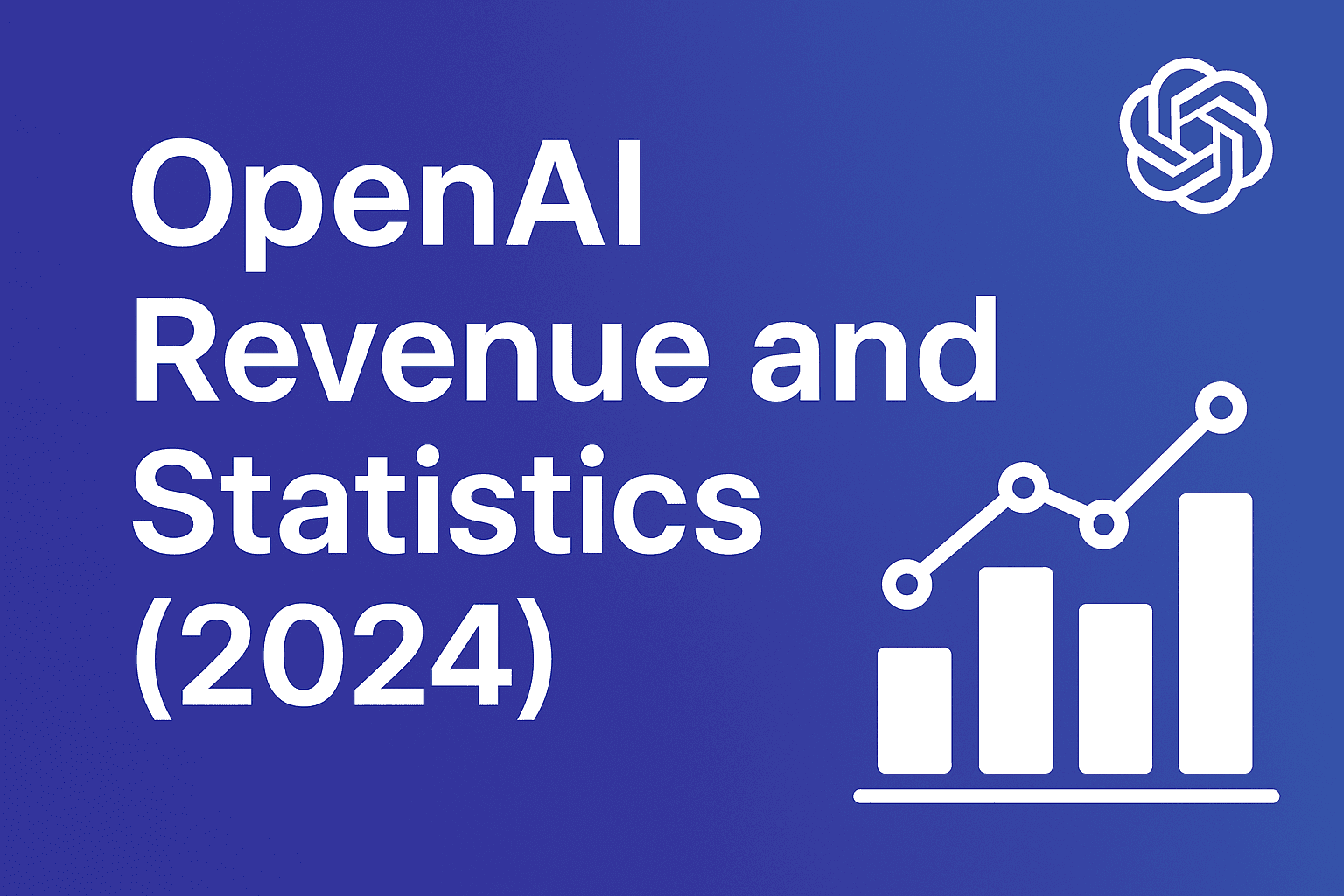
Open AI Revenue and Statistics (2024)
Comprehensive analysis of OpenAI financial performance, user engagement, and market position in 2023. Discover key statistics including $20B valuation, $1B projected revenue, and 100M+ monthly active users.